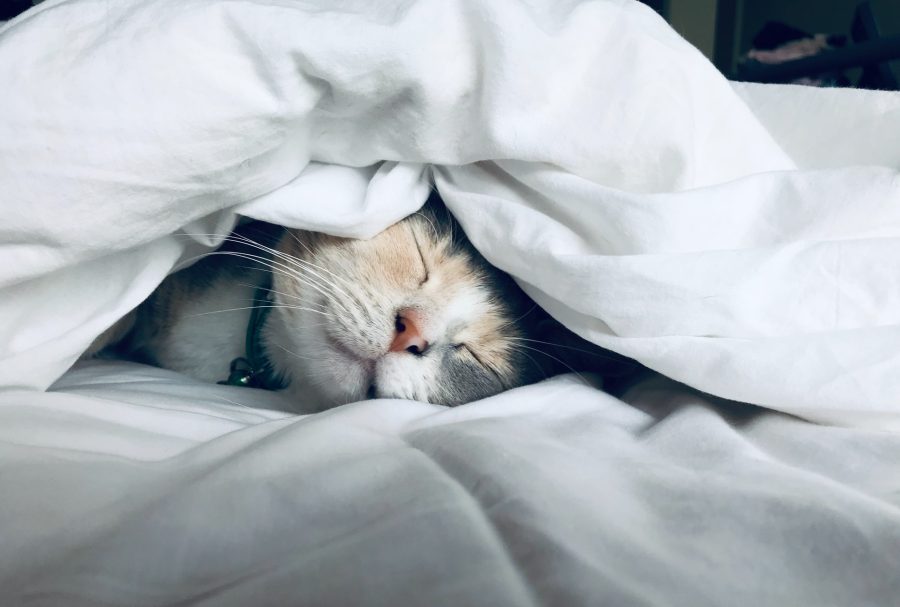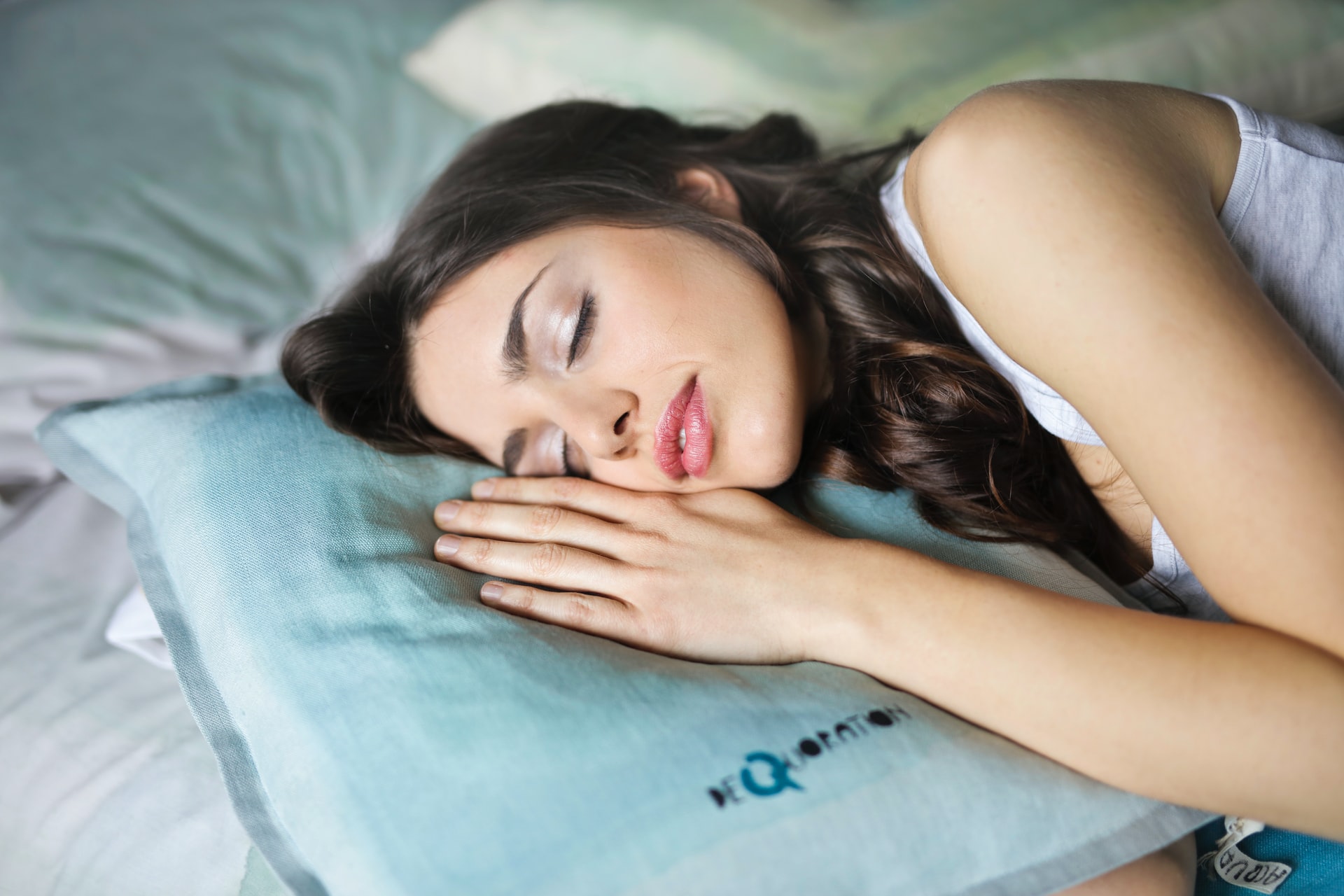
Looking good and feeling great begins with a good night’s sleep. Research has shown that inadequate sleep has a major impact on hormones, cognitive function and physical performance.
It can also lead to an elevated risk of obesity and take a major toll on your skin health.
Quite simply, unless your body is well-rested, it can’t perform its essential processes effectively or efficiently. Unfortunately, the evidence also suggests that most adults do not get sufficient sleep each night.
Sleep quality and quantity have declined over recent years, having taken a backseat to modern lifestyles. We stay up later, we get up earlier, and we do little to ensure we get truly restful sleep.
If you take your health and wellbeing seriously, nothing matters more than your so-called ‘sleep hygiene’. What does science tell us about the tried, tested, and verified tactics for getting better sleep?
Specifically, which lifestyle tweaks could you make right now to immediately improve your sleep quality?
1. Increase exposure to bright light during the day
The human body has its own built-in clock – aka your circadian rhythm. This is the system that keeps you energised during the day and tells you when it’s time to sleep.
Bright light (natural light in particular) instructs your body and brain to maintain its energy levels. By contrast, low light conditions confuse the brain into thinking it is time to go to bed.
Some studies have shown that increasing exposure to bright light during the day can significantly boost your sleep quality. It can also reduce the amount of time it takes to fall asleep, for those who find it difficult to shut off.
When natural light is in short supply, consider investing in bulbs designed to replicate natural light.

2. Curb your caffeine consumption after 3 pm
The immediate energising effects of caffeine fade fairly fast – typically within an hour or so. However, the residual stimulation of the nervous system can continue for 8 hours or more.
Even if you don’t feel particularly ‘hyper’ any longer, the caffeine in your system could still be keeping you awake. This is why most experts recommend avoiding caffeinated beverages after 3 pm. Yes, this may mean facing the prospect of a slightly less energised afternoon, but it’s a small price to pay.
Particularly if you are sensitive to caffeine or struggle with sleep, minimising caffeine intake is a great start.
3. Be aware of blue light exposure
Experts only recently discovered that exposure to blue lights can have a major impact on your sleep quality. Many electronic devices like computers and smartphones emit blue light in frighteningly large amounts.
One option is to wear special glasses that block blue light. Another is to alter the settings on your device – an easy task. A better option is to simply avoid exposure to blue light for at least 2 hours before going to sleep. Don’t shoot the messenger, but yes, we’re advising you to put your phone down and don’t pick it up in the lead-up to bedtime.
Blue light confuses your brain into thinking it is daytime – not what you need when settling down at night.
4. Stop watching the clock
When struggling to fall asleep, many people instinctively stare at the clock. When you wake up during the night, the first thing you do is check the time. You calculate how little sleep you’re likely to get and you stress yourself out.
Understandably, none of this is conducive to restful sleep. Experts therefore often advise removing all clocks from view entirely, unless you absolutely need to know the time.
Staring at the clock and checking the time throughout the night offers no benefit whatsoever. It doesn’t change the situation, it doesn’t help you sleep, and it doesn’t calm you down. In fact, the last thing you need when struggling to sleep is to know how soon you need to get up.

5. Cut down on daytime naps
Short naps of around 30 minutes or less can be highly beneficial. Studies have linked ‘power naps’ with improved brain function and better health in general. But when you take naps beyond the 30-minute mark, they can become counterproductive.
Your natural internal clock often becomes confused by excessive daytime sleeping. The longer you nap and the more often you nap, the more likely you’ll struggle to sleep at night.
Of course, this is not a rule that applies to everyone. There are some who nap regularly and extensively, only to then sleep like babies each night. Though it’s highly unlikely anyone in this bracket will be looking for tips for better sleep online!
6. Getting into a consistent routine
The body’s natural circadian rhythm can and should be programmed, in accordance with your lifestyle. As was the case when you were a child, it can be beneficial to get into a consistent routine.
This essentially means setting a fixed bedtime and getting up at the same time each day. A regimented approach to sleeping helps ensure your body and brain know exactly when you should be awake or otherwise.
The more inconsistent your sleeping patterns, the more likely you are to encounter sleeping difficulties. Not to mention, experience severe daytime tiredness and lethargy.
7. Don’t turn to alcohol
Individuals who struggle severely with their sleeping patterns often turn to alcohol. Not excessively, but perhaps in the form of a couple of drinks to relax before bed.
Which can seem like a logical move, as alcohol can indeed help you fall asleep faster. The problem is that once you drift off, the sleep you get is anything but restful.
Alcohol exacerbates a variety of overnight issues, such as snoring, sleep apnoea and disrupted sleep patterns. It also interferes with your body’s production of melatonin – an important sleep hormone.
This is why even after a long and uninterrupted night’s sleep after alcohol, you still feel like you haven’t been to bed at all.

8. Avoid eating too much before bed
The same also applies to binge eating and comfort eating late at night. Some studies have indicated that eating carb-rich meals four hours before going to bed can improve sleep quality. Elsewhere, others have shown how eating heavy meals or junk food of any kind before bed has the opposite effect.
It’s basically a case of ensuring you do not give your body and brain too much to do, when attempting to fall asleep. Eating and drinking trigger a wide variety of processes within the body and brain – none of which are going to help you get to sleep.
9. Get plenty of exercise during the day
By far, exercise is the most extensively science-backed method of getting better sleep. So yes, if you’re healthy enough to do so, stay active and keep fit.
Physical exercise tires your body in a way that naturally brings on better sleep. In addition, the psychological benefits associated with exercise can support sleep patterns by reducing stress, anxiety, and worry.
Though again, it is important to avoid exercising too close to bedtime – doing so will only keep you awake. It’s also crucial to take appropriate care not to injure yourself with rookie mistakes. After all, injuries rarely lead to happy waking or sleeping times.
10. Consult with your doctor
Anyone who is genuinely concerned about their sleep patterns should speak to a doctor. This will enable you to rule out the possibility of a sleep disorder, or allow you to access to the treatment you need if a disorder is diagnosed.
Your doctor will also be able to advise on any supplements or medications you may find helpful. Before turning to medications of any kind to help you sleep, ask for your doctor’s advice.
Medications and supplements are typically a last resort option, but can still be helpful when all else fails.